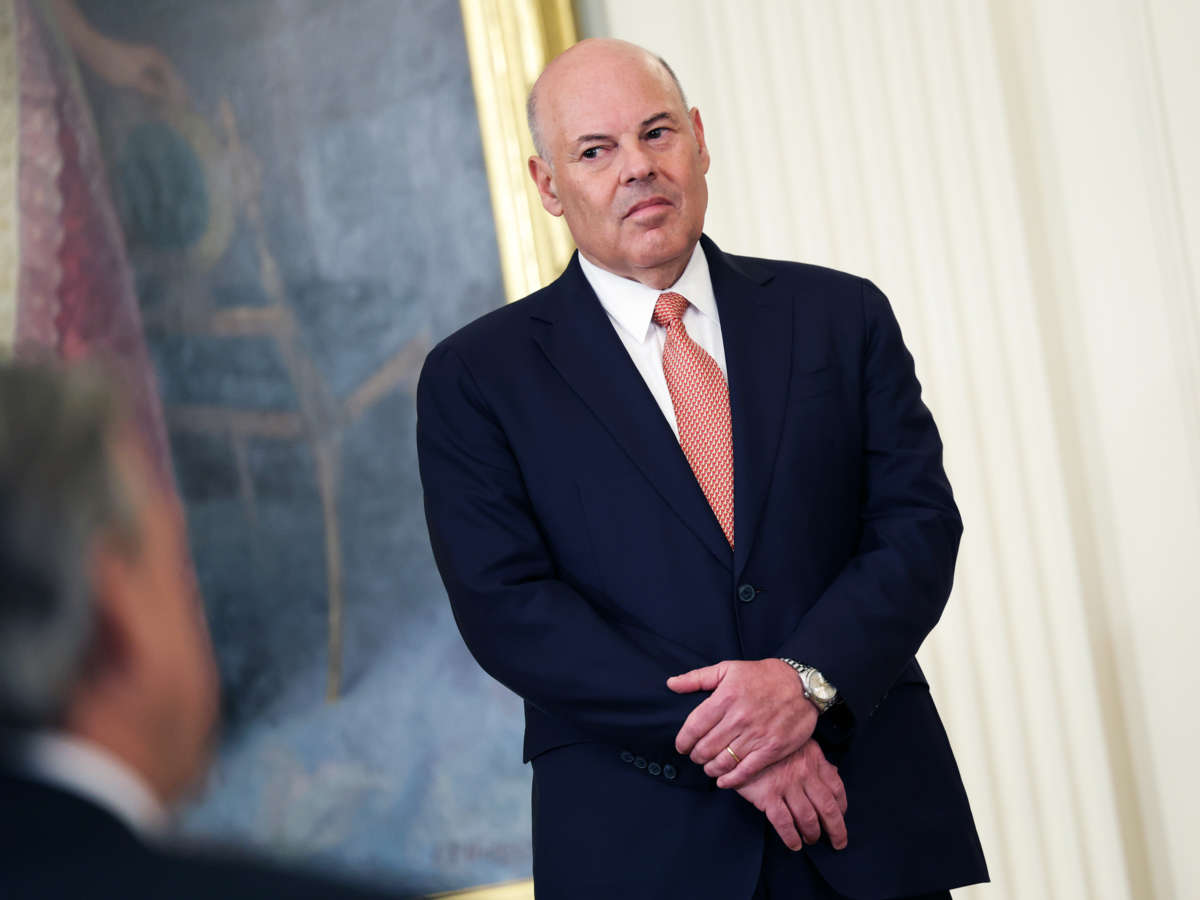Postal union officials are sounding the alarm about the potentially damaging impacts of Postmaster General Louis DeJoy’s effort to consolidate post offices across the U.S. as part of his widely condemned 10-year plan to reshape the public mail agency.
Government Executive reported Friday that “more than 200 post offices and other U.S. Postal Service facilities are set to shed some of their operations as soon as this year as the mailing agency seeks to consolidate those functions at larger buildings, according to documents shared by management.”
“The changes will mean letter carriers no longer go to their local facility to pick up mail for their route, instead traveling farther distances after starting at a consolidated location. The impacted post offices will still conduct their retail operations, but many of the back-end functions will be stripped away and relocated,” the outlet noted. “The impacted sites are located in Georgia, New York, Texas, Florida, Michigan, Pennsylvania, Ohio, Kansas, Maryland, Massachusetts, West Virginia, Kentucky, Washington, North Carolina, Indiana, and Arkansas. The initial consolidations are expected to begin as soon as next month.”
Unions representing postal workers have accused USPS management of keeping them in the dark about the consolidation plan, an integral component of DeJoy’s strategy for the next decade.
Charlie Cash, the industrial relations director at the 200,000-member American Postal Workers Union (APWU), wrote in a message to members on Thursday that “we do not know much more than what is already published in the public domain.”
Cash said that he and other APWU leaders spoke with postal management last month “in what we thought was a meeting to discuss the ‘mega-plants’” that DeJoy — a Trump donor and former logistics executive — is seeking to establish as alternatives to smaller postal facilities spread out across the nation.
“Instead we were ambushed with the [Sortation and Delivery Center] concept,” Cash continued, referring to DeJoy’s strategy. “We voiced various concerns, especially on the timeline and how we were not given an opportunity for input.”
“We have not been given the number of employees impacted,” Cash added. “We do not have enough information to make a determination of how this will impact service to the public.”
Chuck Zlatkin, legislative and political director for the New York Metro Area Postal Union, expressed similar concerns in a Twitter post late Friday.
“How many post offices will be closed?” Zlatkin asked. “How many clerks and drivers will lose jobs? DeJoy’s Great Consolidation is a true danger to the public post office.”
Late last month, DeJoy — who has been mired in scandal throughout his tenure as postmaster general — laid out his plan to cut 50,000 USPS jobs in the coming years, an announcement that also drew backlash from the APWU.
DeJoy has remained in his post and vowed to stay for a “long time” despite Democratic control of the White House, which has authority over the postal board that can fire the postmaster general.
While Biden appointees constitute a majority of the Postal Service Board of Governors, one of the body’s Democrats — Donald Moak — has joined the board’s Republicans in supporting DeJoy.
But Moak’s term, along with that of Republican William Zollars, expires in December, giving Biden an opportunity to nominate their replacements and secure enough votes to oust DeJoy.
In a letter earlier this month urging Biden to choose progressive replacements for Moak and Zollars, a coalition of 83 advocacy groups noted that “despite the passage of the Postal Service Reform Act (PSRA), DeJoy still plans to raise postage prices at ‘uncomfortable rates’ around the country.”
“Additionally, numerous post office locations are set to be shuttered under his 10-year restructuring plan, potentially impacting thousands of employees during a time of economic crisis,” the groups continued. “After DeJoy’s numerous failings at the helm, it is imperative that we have a strong, full, and reform-oriented Postal Board of Governors in place to hold him accountable to the true mission and public service goals of the USPS.”


